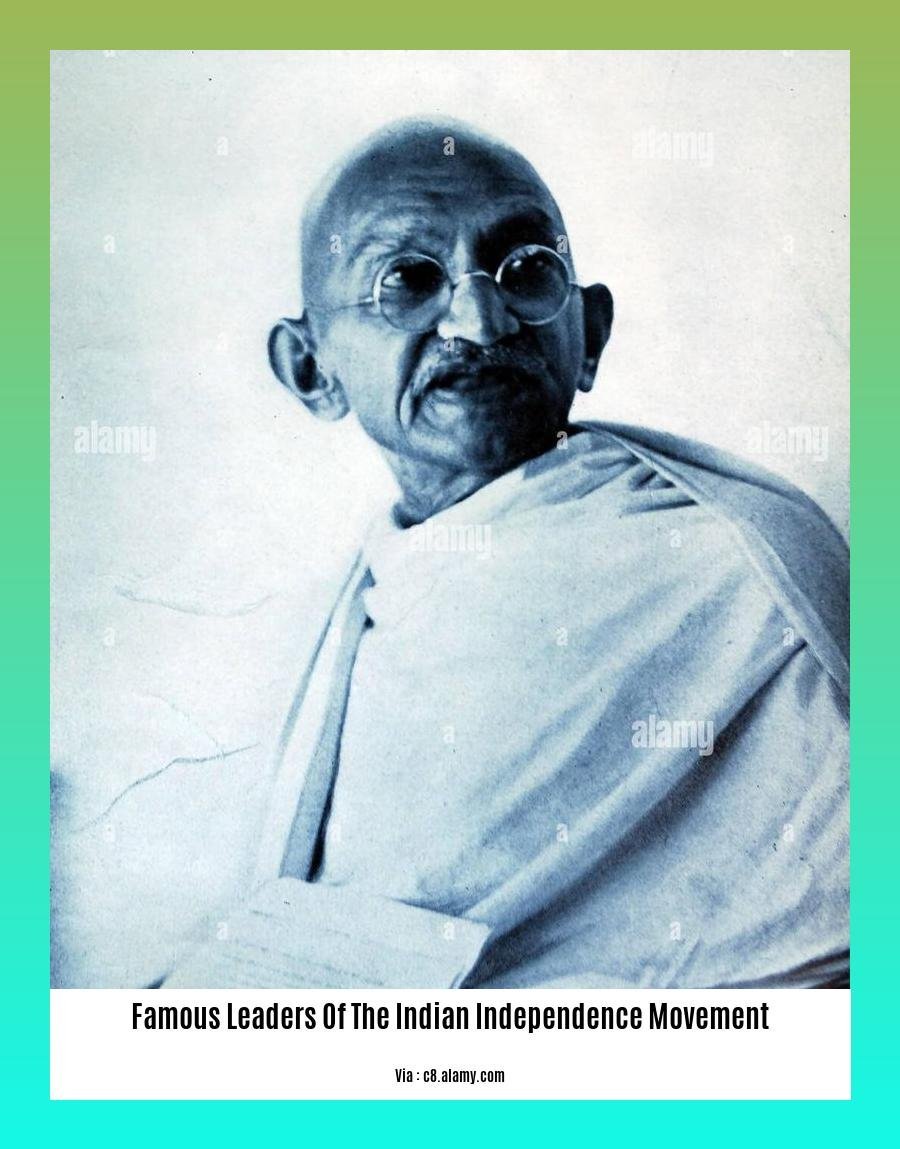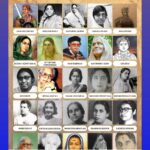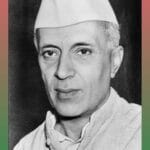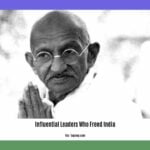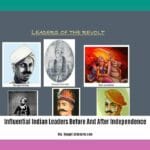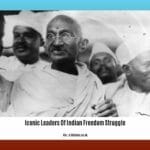**Famous Leaders of the Indian Independence Movement: A Journey Through History**
The Indian independence movement was a pivotal period marked by the extraordinary leadership of individuals who dedicated their lives to the cause of India’s liberation. This article explores the remarkable stories of these iconic figures, examining their strategies, sacrifices, and the ideological clashes that shaped this transformative era.
Key Takeaways:
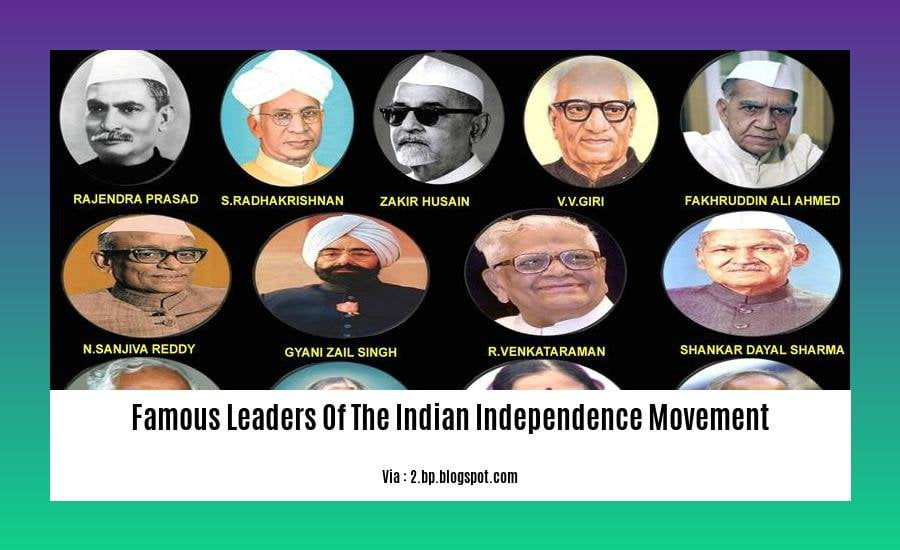
- Mahatma Gandhi’s non-violent resistance played a pivotal role in India’s independence struggle.
- Jawaharlal Nehru became the first prime minister of independent India and was a key figure in its early development.
- Subhas Chandra Bose’s Indian National Army fought against British rule with Japanese support.
- Vallabhbhai Patel skillfully integrated princely states into the Indian Union.
- Rani Lakshmi Bai of Jhansi led an important rebellion against British forces in 1857.
- Maulana Azad advocated for Hindu-Muslim unity and was a respected leader during the independence movement.
Famous Leaders of the Indian Independence Movement
Who were the famous leaders of the Indian independence movement, and what did they do?
Mahatma Gandhi
The most iconic figure of the Indian independence movement, Gandhi was a staunch advocate of non-violent resistance and civil disobedience. His teachings and leadership inspired millions of Indians to join the struggle for freedom.
Jawaharlal Nehru
A prominent nationalist leader, Nehru became the first prime minister of independent India. He played a key role in shaping India’s foreign policy and economic development.
Subhas Chandra Bose
Bose formed the Indian National Army and fought against British rule with the help of Japan. His slogan, “Give me blood, and I will give you freedom,” resonated with many Indians who were tired of British rule.
Vallabhbhai Patel
Patel was a key figure in the integration of the princely states into the Indian Union. He is known as the “Iron Man of India” for his strong leadership and determination.
Rani Lakshmi Bai of Jhansi
A brave warrior queen, Rani Lakshmi Bai led a rebellion against the British during the 1857 revolt. Her courage and fighting spirit made her an icon of the independence movement.
Maulana Azad
A prominent Muslim leader, Azad supported Hindu-Muslim unity. He played a significant role in the drafting of India’s constitution.
These are just a few of the many famous leaders of the Indian independence movement. Their sacrifices, leadership, and determination paved the way for India to achieve its freedom from British colonial rule.
Delve into the lives of the legendary Indian freedom fighters who played pivotal roles in India’s fight for independence. Explore the legacies of the influential leaders who shaped the destiny of a nation, including the fathers of Indian independence who laid the foundation for a free and sovereign India.
Leaders of Indian Independence Movement
In India’s struggle for independence from British rule, numerous leaders emerged, each contributing their unique vision and strategies to the movement. Their unwavering dedication and sacrifices shaped the course of history, eventually leading to India’s freedom.
Early Leaders:
- Dadabhai Naoroji: Known as the “Grand Old Man of India,” Naoroji was an economist and politician who advocated for self-rule and economic justice.
- Bal Gangadhar Tilak: An influential nationalist, Tilak coined the slogan “Swaraj is my birthright” and played a pivotal role in mobilizing mass support for the independence movement.
Moderate Leaders:
- Gopal Krishna Gokhale: A moderate leader, Gokhale emphasized the importance of education and social reform.
- Pherozeshah Mehta: A lawyer and politician, Mehta advocated for constitutional reforms within the British framework.
Radical Leaders:
- Subhas Chandra Bose: A charismatic leader, Bose formed the Indian National Army (INA) and fought against the British with the support of Japan.
- Bhagat Singh: A revolutionary, Singh believed in armed resistance against British rule and became a symbol of India’s struggle for freedom.
Mahatma Gandhi:
The towering figure of Mahatma Gandhi emerged as the beacon of the independence movement. His philosophy of non-violence and civil disobedience, known as Satyagraha, resonated deeply with the Indian masses. Gandhi led the Indian National Congress (INC) and played a crucial role in negotiating India’s independence.
Key Takeaways:
- The leaders of the Indian independence movement came from diverse backgrounds and held different ideologies.
- Moderate leaders sought constitutional reforms within the British system, while radical leaders advocated for armed resistance.
- Gandhi’s non-violent approach became a defining characteristic of the movement.
- The sacrifices and dedication of these leaders inspired the Indian people and ultimately led to India’s independence.
Source:
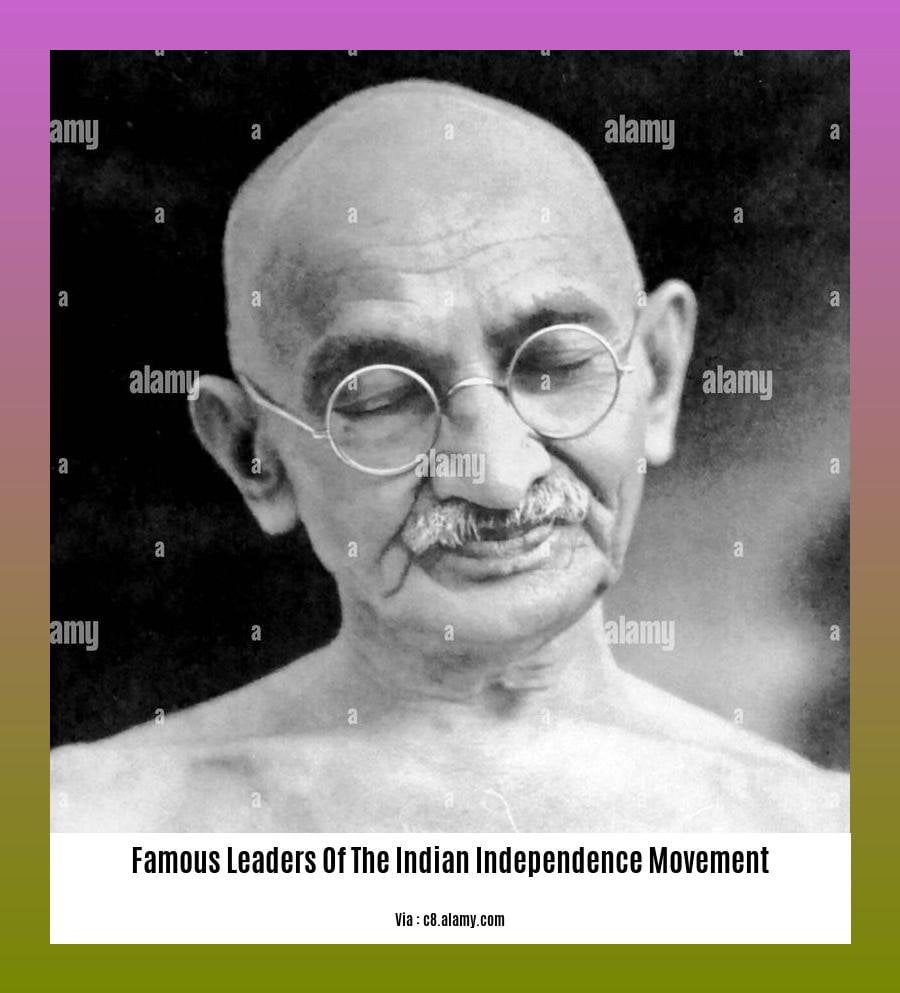
FAQ
Q1: Who were some of the most influential leaders of the Indian Independence Movement?
A1: Key leaders included Mahatma Gandhi, Jawaharlal Nehru, Subhas Chandra Bose, Vallabhbhai Patel, Rani Lakshmi Bai of Jhansi, and Maulana Azad.
Q2: What was the main goal of the Indian Independence Movement?
A2: The primary objective was to end British colonial rule (British Raj) and achieve self-governance for India.
Q3: When did the Indian Independence Movement begin and end?
A3: The movement originated in Bengal in the late 18th century and culminated in India’s independence in 1947.
Q4: What was the significance of Mahatma Gandhi’s role in the movement?
A4: Gandhi advocated for non-violent resistance and civil disobedience, which became central to the movement’s strategy.
Q5: How did the Indian National Congress contribute to the movement?
A5: The Indian National Congress emerged as a major political organization that played a crucial role in mobilizing support for independence and negotiating with the British authorities.
